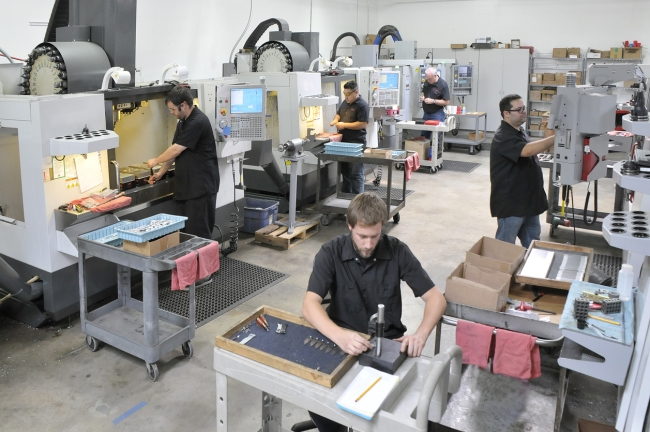3 minute read • published in partnership with Irwin Mitchell
Insight: Building resilience for manufacturing businesses in challenging times
As British factories experience their weakest month in almost three years, with shrinking orders and a decline in economic activity, manufacturing businesses are facing unprecedented challenges. Philip Middleton, restructuring and insolvency solicitor at Irwin Mitchell looks at what manufacturing businesses can do to build resilience and sustainable growth.
The latest manufacturing purchasing managers’ index (PMI) paints a concerning picture, recording a 39-month low of 43.0. This marks the 13th consecutive month of contraction, indicating the need for manufacturing businesses to consider re-evaluating their strategies and building resilience for the future.
The ongoing slump in the manufacturing sector can be attributed to a combination of factors, including rising interest rates at home and abroad. Such conditions have resulted in a significant reduction in output and new orders, reaching levels rarely witnessed outside of crisis periods. This challenging environment encourages manufacturers to think about making difficult decisions, such as considering cutbacks on purchasing activity, inventory holdings, and staffing levels. These measures aim to control costs, protect margins, and operate in a leaner and more efficient manner.

Manufacturing businesses are facing unprecedented challenges but there are opportunities to build resilience and sustainable growth / Picture: Getty/iStock
To weather these uncertain times and think about preparing for more sustainable business growth, manufacturing businesses should consider adopting a proactive approach to restructuring and business planning. Resilience and sustainable growth should be at the forefront of their strategies. Here are some key steps that manufacturing businesses can consider taking to navigate through these challenging times:
1 – Review and Optimise Operations: Consider conducting a comprehensive assessment of your manufacturing processes, supply chains, and operational efficiencies. Identify areas of improvement, eliminate bottlenecks, and think about streamlining operations to enhance productivity and reduce costs.
2 – Diversify and Innovate: Consider exploring new market opportunities and thinking about diversifying your product offerings. Embrace innovation and think about adapting to changing customer demands. Investing in research and development can help you stay ahead of the competition and identify new revenue streams.
3 – Strengthen Financial Position: Evaluate your financial health and think about taking proactive steps to strengthen your position. This may involve considering renegotiating contracts, and seeking expert advice on managing debt and cash flow.
4 – Invest in Technology: Consider embracing digital transformation and think about investing in technology that can improve efficiency, enhance product quality, and enable better data-driven decision-making. Automation and artificial intelligence can streamline processes and reduce costs in the long run.
5 – Foster Strategic Partnerships: Consider collaborating with suppliers, customers, and industry peers to build resilient supply chains and share best practices. Engage in knowledge-sharing initiatives and think about staying up-to-date with the latest industry trends and innovations.
6 – Prioritise Workforce Development: Consider investing in your workforce by providing training and upskilling opportunities. Empower your employees to adapt to changing technologies and equip them with the necessary skills to drive innovation and operational excellence.
By considering these steps, manufacturing businesses can position themselves for a resilient and sustainable future. While the current challenges may seem daunting, they also present an opportunity for growth and transformation. It is crucial for businesses to think about seeking expert advice, such as that provided by insolvency and restructuring professionals, to navigate through these complex times successfully. By considering a proactive approach and prioritising resilience, manufacturing businesses can overcome the current slump and emerge stronger in the long run.
